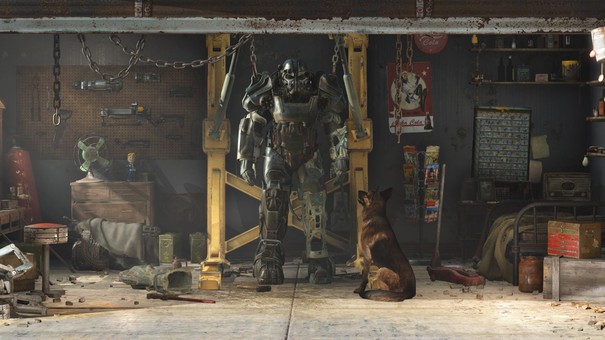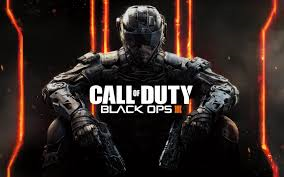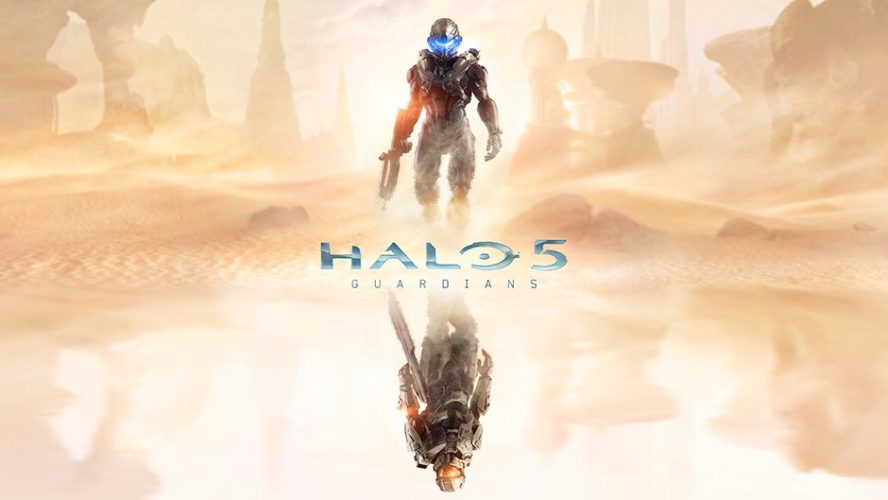Mainstream
Debate: Are Game Demos Game Killers?
 If we think about LittleBigPlanet, Age of Conan or Mirror’s Edge, we notice they have two things in common: very successful and well received demo versions (or beta stages) and very poor, lower than anticipated game sales. And since these are not the only titles in which a demo (or the lack of it) appears to be connected with their commercial success, I believe we should analyze the influence demos have in the game world and debate: are game demos game killers?
If we think about LittleBigPlanet, Age of Conan or Mirror’s Edge, we notice they have two things in common: very successful and well received demo versions (or beta stages) and very poor, lower than anticipated game sales. And since these are not the only titles in which a demo (or the lack of it) appears to be connected with their commercial success, I believe we should analyze the influence demos have in the game world and debate: are game demos game killers?
As a note for those wondering, I am including “game demo” and “open beta” in the same category since, even though the concepts are slightly different, they do the same thing: present a bit of the final product.
Now let’s start with LittleBigPlanet, a game Sony hoped to turn into a huge financial success and even a “console seller”: it had an impressive beta stage (Eurogamer servers simply could not handle the amount of visitors wishing to get one of the limited 5,800 keys and other websites started to offer even more) and everybody who tried the game was impressed, amazed and blown away by it. And that was not all – LittleBigPlanet scored incredibly high in review scores and bucketloads of websites considered Media Molecule’s title one of the best games of the year. You would believe that such a successful game breaks sale records after sale records, right? Well… wrong! Until now, there are around 1.3 million unique users in LBP and sales are nowhere near initial predictions.
Age of Conan is another good example of a game killed by its own successful beta: considered a potential “World of Warcraft beater” and probably the most anticipated MMORPG of early 2008, Age of Conan’s beta was a success, with over 50,000 accounts being made during the first 24 hours only. Not to mention that Massively named AoC “everything I was hoping for and then some”. The results? When the full game was released, nobody wanted to buy it anymore and Funcom’s game never managed to get anywhere near the predicted sale figures. Even more, it was recently announced that many servers will be closed because of the lack of players.
And still, that’s not everything: last week I presented you the list with the most played Xbox Live games in 2008. The Battlefield: Bad Company Demo was at number 8, while the full game barely made it to number 14. Mirror’s Edge Demo was also one of the most played XBL titles, but the full title didn’t even make the top 20. Also, the Too Human Demo, considered by many a huge disappointment, still managed to get into the top. And similar examples can go on and on and on…
 So, I have to ask myself (and, of course, you) what could be the logical explanation of such strange behavior from gamers? We do love playing the free demos and we all rush to do so, but when the full games get released, the sales are much lower than anticipated. I mean… OK, if we would’ve talked about a game like Haze whose demo disappointed big time just like the full game, I would’ve understood. But we’re talking about very popular demos here. Where does all the love disappear?
So, I have to ask myself (and, of course, you) what could be the logical explanation of such strange behavior from gamers? We do love playing the free demos and we all rush to do so, but when the full games get released, the sales are much lower than anticipated. I mean… OK, if we would’ve talked about a game like Haze whose demo disappointed big time just like the full game, I would’ve understood. But we’re talking about very popular demos here. Where does all the love disappear?
But there’s even more! If we take a closer look to recently released games, we can notice that titles which offered no demo versions were still incredibly well received by the public and sold big time: Grand Theft Auto IV and Metal Gear Solid 4 are probably the most recent examples.
Could it be the fact that part of the hype simply disappears after we get the chance to play the game? Could it be the fact that, even though the general reaction to a demo is good, there are still lots of players who find it disappointing and decide against purchasing the full product? Could it be that game demos do more harm than good?
It seems so… but there is something that complicates things a bit: in Halo 3, for example, 800 000 people took part in the beta tests. Still, the game remains the flagship Xbox 360 title and is still one of the most played XBL games. Call of Duty 4 also went through beta testing AND a demo release and it still was a bestseller and one of the most played multiplayer games on all platforms…
So if it’s not the quantity of players involved in the “testing” of the final product, nor the quality of the said demos (since all of them were real hits), then what is it that makes certain demos perform better than the full games? Could it be the FREE factor bigger than anybody would anticipate? It could: a couple of weeks ago, I started playing Unreal Tournament 2004 for the Time Traveling feature and noticed that the most populated game room was the one for the demo version of the game. Which is simply amazing: four years after the game’s launch, it is still the demo that survives. But did it kill the video game? Please share your opinion!
Gaming News
Best Usenet Newsgroups for Gaming

Usenet newsgroups may seem old-fashioned to many. In reality, they are the perfect place for players who love the classics but are always open to new games and strategies. These internet communities are also ideal for those searching for gaming material, solutions to issues, or a conversation related to their favorite video games. Whether you are an experienced player or entering this domain for the first time, Usenet holds a ton of resources that could change how you interact with the gaming world.
Understanding Usenet Newsgroups
Usenet newsgroups, which include gaming groups, are like message boards. People can post messages and articles in different categories. Each group is a special place for certain topics – this makes it simple to find the subjects you want to read about most. The unique characteristic of Usenet lies in its decentralized structure. This permits a much more open interchange of details and information than what is seen on regular social media platforms or forums.
Initially, Usenet was utilized only for academic and professional exchanges. However, it soon turned into a prevalent method for communicating among hobbyists and gaming groups. Presently, even though Usenet has been surpassed by newer platforms in terms of popularity, it continues to be an important tool for knowledgeable users who value its special mix of staying anonymous with fast communication. Knowledgeable users also love access to vast archives containing historical information and software applications that are no longer available elsewhere on the Internet.
Top Usenet Newsgroups for Mobile Games
comp.mobile.games
This is a fresh group dedicated to discussions about mobile games and related technology matters within the industry. Here, you can find conversations about the coding aspects of creating games for mobile devices, like new updates in platforms or fresh game engines being used for development purposes.
rec.games.mobile
The perfect place for people who play games on their mobile devices as a hobby. Here, users talk about strategies, tricks and discuss game evaluations. This group is also suitable for those who are not serious gamers but like to connect with others and discuss playing strategies.
alt.games.mobile
In this newsgroup, users often discuss gaming fixes and give each other suggestions. It is also the go-to place for gamers and die-hard fans that wish to find each and every detail of the game they love to play.
Best Newsgroups for Video Game Discussions
Newsgroups such as alt.games.video and rec.games.video.arcade have lively communities where gamers often engage in exchanges and conversations. These forums are not only for resolving gaming issues or writing reviews; they are centers of enthusiastic discussion regarding gaming culture, strategy, and creation process. Be it the latest RPGs, energetic shooters or old-school arcade games – there is always a thread bustling with discussion.
In these threads, not only will you encounter a variety of views from across the globe, but you may also land on gaming tricks and shortcuts that are lesser known. For those who are new, remember that every group has its own tone and rules. Lurking for a while should help you understand community norms and ensure your contributions are accepted.
Specialized Gaming Newsgroups
Specialized newsgroups are designed for particular gaming communities. They provide a discussion environment that is more centered and focused. These groups are ideal for users who really love a particular game and want to explore it in great depth.
The benefit of these specific groups is their collection of very particular details. Gamers who are part of such a group often exchange unique things like custom mods or skins, and offer advice on how to make gameplay more efficient and fun.
Tips for Using Usenet Newsgroups for Gaming
To enter Usenet, you will first need to pick a provider that is well-known for security, high retention rates and fast speed. To make the right pick, it is a good idea to get the rankings for the best Usenet providers. Next, get advanced newsreader software, as this will allow you to browse through newsgroups easily and manage your activities effectively.
Focus on newsgroups related to gaming and participate in discussions matching your interests to find gaming buddies. Also, make sure that you follow the netiquette of each group while doing so. Utilize newsreader software functions like filters and automation to keep things simple.
Conclusion
Usenet, at first sight, can appear as a choice for oldies or people that have not yet acclimated to social media platforms and forums. However, its distinct characteristics make it very useful for all kinds of gamers. If you are searching for uncommon information, looking for detailed conversations or wish to join a community that matches with your specific interests; Usenet is surely the place for you. Jump in to see how Usenet can add another element of fun to your gaming experiences!
Casual
Encouraging Growth and Motivation: Resources for Child Development

Child development is a complex journey marked by critical milestones where each stride forward builds upon the foundation of the previous one. Acknowledging children’s individual needs, pediatric therapy services tailor strategies to foster physical, emotional, and cognitive growth. To support this transformative process, environments that prompt curiosity and engagement, coupled with advanced educational tools, play an instrumental role in shaping young minds. These resources, carefully selected and applied, can significantly amplify a child’s developmental trajectory. Keep reading to learn about the effective ways these tools and techniques can aid in advancing childhood milestones.
Pediatric Therapy Services: Enhancing Developmental Milestones
Pediatric therapy services support children as they reach and surpass developmental milestones. These services, often provided by skilled therapists, address various growth challenges, ensuring each child has the best possible start in life. From speech and occupational therapy to physical and behavioral interventions, these professionals tailor their approach to meet the unique needs of every young patient.
Therapists work relentlessly to motivate children, fostering an environment where milestones are not merely achieved but celebrated. Through personalized, one-on-one sessions, children gain the confidence and skills necessary to navigate their developmental journeys more easily. The trust between therapist and child is a solid foundation for consistent progress and paves the path for lifelong learning and adaptation.
Resource provision is a key component of pediatric therapy, equipping parents with the tools to continue therapy practices at home. Effective communication between therapists and families ensures a cohesive strategy that envelops the child’s daily routine, enhancing the therapy’s impact. It also allows parents to identify subtle progress, reinforcing their pivotal role in the child’s developmental success.
If you’re looking for pediatric therapy in your area, a simple Google search like “pediatric therapy Arizona” will help you find local providers and services tailored to your child’s needs, ensuring they receive the specialized care necessary for their development.
Optimizing Play Spaces: Creating Environments for Learning and Exploration
Optimized play spaces are vital platforms where children engage with their world, build skills, and unleash their creativity. Designers of such areas pay astute attention to elements that promote safe exploration and intellectual stimulation. A thoughtfully arranged play environment serves as a place of entertainment and a crucible for burgeoning development.
Professionals incorporate a variety of tactile and visual stimuli within play areas to cater to diverse developmental needs and interests. Stimulating sensory experiences is central to cognitive and motor skill refinement among younger populations. The intentional selection of colors, textures, and interactive features sparks curiosity and encourages physical activity, which is fundamental to healthy growth.
Accessibility remains paramount in creating play spaces, ensuring they cater to children across all abilities. Including adaptive resources within these environments demonstrates a commitment to inclusive development, allowing every child to participate and benefit from the joy and learning play offers. Such inclusiveness fosters a sense of community and belonging, which is essential for emotional and social development.
Affording children autonomy in their play advances self-directed learning and problem-solving capabilities. When children feel empowered to make choices within their play, they better understand their preferences and abilities, setting the stage for confidence and self-awareness — qualities that are instrumental as children grow and transition through life’s stages.
Additionally, incorporating elements like fake plants or outdoor plants from retailers like Nearly Natural outdoor plants into play spaces can enhance children’s sensory and aesthetic experience.
Interactive Learning Tools: Technology and Resources for Cognitive Development
Interactive learning tools harness technology’s power to solidify children’s cognitive development. These digital resources provide an array of engaging, educational content that aligns with critical thinking and problem-solving skills.
Software and applications designed for children’s learning capitalize on the allure of multimedia to capture young minds. Effective education solutions provide children with stimulating challenges that are age-appropriate and aligned with developmental targets.
The discerning use of educational technology in classrooms and homes can reinforce concepts and skills taught through traditional methods. It creates a harmonious blend of instruction and interactive play, thereby cementing a child’s understanding and retention of information.
Providers of such educational platforms are ever vigilant, updating content to reflect new educational strategies and the latest academic research. Thus, children equipped with these technological tools remain at the vanguard of current learning methodologies, all while engrossed in fun and dynamic ways.
Overall, caregivers and educators can provide comprehensive support for children’s developmental journeys by integrating pediatric therapy services, optimized play spaces, and interactive learning tools. These resources nurture their physical, emotional, and cognitive growth and cultivate a lifelong love for learning and exploration.
Features
Why Investing in Academics Is Investing in Yourself

The quest for knowledge and self-improvement through academic pursuits is more than just a milestone in life; it is a cornerstone of personal development and success. Committing resources to further education is not merely an expense; it is an investment with considerable returns that extend far beyond the classroom. Education equips us with the tools required to navigate an increasingly complex world, opening doors to opportunities and fostering personal growth. Keep reading to discover why allocating time and resources to your academics is a decision that pays dividends for a lifetime.
The Lifelong Returns of Investing in Your Education
Investing in education is akin to planting seeds that blossom into numerous opportunities. Beyond financial gains, education forms the bedrock for career success and personal fulfillment. It empowers individuals to pursue their passions, enhances job satisfaction, and boosts self-esteem through academic achievements. Education serves as a catalyst for social mobility, breaking cycles of poverty by equipping people with the skills needed to improve their lives and contribute positively to society.
This ripple effect extends to lower crime rates and increased civic engagement, benefiting communities at large. Beginning with scholarships for high school sophomores can provide the initial support needed to embark on this transformative journey. These opportunities signify a commitment to nurturing future leaders and fostering a culture of lifelong learning and achievement.
Personal Growth and Lifelong Learning Through Education
Education is a vital aspect of personal development, providing opportunities for growth, character building, and discovering passions and capabilities. It fosters resilience and adaptability, which are essential in all aspects of life. A strong educational foundation encourages lifelong learning, ensuring individuals remain relevant and proactive in their professional and personal lives.
Education also broadens perspectives, exposing individuals to diverse ideas, cultures, and worldviews, fostering empathy, cross-cultural understanding, and appreciation for the human experience. It also allows for critical assessment and engagement with the world from an informed standpoint. The journey through academia often involves self-discovery, helping students uncover their strengths, weaknesses, interests, and values, leading to a more fulfilled life with aligned choices and goals.
Expanding Your Horizons: The Social Benefits of Academics
Academic investment in education is about building social capital through interactions with peers, faculty, and industry professionals. These interactions foster communication skills and relationships, which are crucial for life stages. Extracurricular activities in academic settings provide platforms for students to express themselves, learn new skills, and take on leadership roles.
Collaborative projects and team-based assignments teach students the importance of teamwork, compromise, and collective pursuit of goals. Higher education institutions also serve as a microcosm of society, requiring social awareness and finesse to navigate the diverse cultural, economic, and ideological perspectives.
How Academic Achievement Propels Professional Success
Professional success often hinges on a blend of experiences and achievements, with academic accomplishments playing a crucial role. Excelling in academia fosters a strong work ethic and sharp time-management skills, highly valued in today’s job market. Employers frequently use academic credentials to gauge candidates, especially for specialized roles like those requiring an aa in paralegal studies, where in-depth knowledge is pivotal.
Moreover, higher education equips individuals with specialized knowledge and technical skills that are indispensable in complex roles. Critical thinking and problem-solving abilities, nurtured during academic pursuits, further enhance one’s capacity to tackle challenges creatively. The networks formed during academic years often open doors to valuable career opportunities through mentorships and connections.
Leveraging Educational Investments for Career Advancement Opportunities
Investing in education can significantly impact career advancement, as academic qualifications often lead to promotions, leadership roles, and exclusive professional circles. Continuous education can lead to specialized career paths with higher salaries and statuses, especially in evolving fields. Higher education institutions offer career services like resume-building workshops and job placement programs to help students transition from academia to the workforce effectively.
For those already in the workforce, further education can be a strategic move for career change or progression, with flexible online programs and part-time options allowing working professionals to pursue additional qualifications while maintaining their current positions.
Altogether, the investment in academics is a far-reaching decision that impacts not just your immediate circumstances, but your future potential. As you prioritize your academic pursuits, you build a stronger foundation for success in every aspect of life—professionally, personally, and socially.
-

 Guides5 years ago
Guides5 years ago6 Proven Ways to Get more Instagram Likes on your Business Account
-

 Mainstream6 years ago
Mainstream6 years agoHow to Buy Property & Safe Houses in GTA 5 (Grand Theft Auto 5)
-

 Mainstream10 years ago
Mainstream10 years agoBioWare: Mass Effect 4 to Benefit From Dropping Last-Gen, Will Not Share Template With Dragon Age: Inquisition
-

 Casual1 year ago
Casual1 year ago8 Ways to Fix Over-Extrusion and Under-Extrusion in 3D Printing
-

 Mainstream12 years ago
Mainstream12 years agoGuild Wars 2: The eSports Dream and the sPvP Tragedy
-

 Uncategorized4 years ago
Uncategorized4 years agoTips To Compose a Technical Essay
-

 Guides1 year ago
Guides1 year agoExplore 15 Most Popular Poki Games
-

 iOS Games2 years ago
iOS Games2 years agoThe Benefits of Mobile Apps for Gaming: How They Enhance the Gaming Experience







John
January 16, 2009 at 3:21 pm
I think you’re confusing “popular” demos with “well liked” demos. Just because a ton of people tried BF Bad Company doesn’t mean that they wanted to buy it after playing the demo. Also, Age of Conan is shutting off 2/3 of their servers and had a ton of really annoying bugs after release (female characters weaker than male counterparts? wtf?). Popularity of a demo will only result in high sales if the game you are demoing is worth purchasing. For an example of that, look at how well the original skate did. It had a 30 minute timed demo and I think the week leading to that game’s release was one of the hardest I’ve ever lived through.
notafamilyguy
January 16, 2009 at 4:12 pm
Yes, I agree with you John. I think demos should be like women: they should tease you and tease you and tease you and leave you begging for more. If they show and give you all they have after your first “date”, you’ll probably go and look for another. We all seek new experiences and we tend to do our best to get them. So if a demo is good enough to let us understand that once we grab the game we get even more, it does no harm. Otherwise… well, I’m not planning to get married and do the same game over and over again. lol
Calin
January 16, 2009 at 4:31 pm
@John: You might be right – I started from the premise that if one plays a demo again and again, he or she also likes it – because I doubt that a game that gets into the “most played of 2008” on Xbox Live is not “well liked” as well and it doesn’t have people returning. However, as you said “Popularity of a demo will only result in high sales if the game you are demoing is worth purchasing.” It is still a very subjective matter, but it clearly matters a lot.
@Deoren: That’s what I was saying. The foaming gamers get a taste and simply move away because of that.
@Notafamilyguy: Nice analogy, indeed and well said!
Tyrannicus 100BC
January 17, 2009 at 7:15 am
Vinteresting question. I’d be interested in another question (anyone have data?). Consider normalized by user sales rates for PSN vs. XBLA. PSN has spotty-at-best demo coverage for purchasable games, many offerings being so small in scope that the purchased product feels a lot like a demo (Pain, Flower, etc). Contrast that to XBLA which has a policy of every downloadable game having a demo.
If the hypothosis of “demo == lowered sales” is correct, we should see PSN having a higher attach rate than XBLA. However, I think even anecdotaly, most readers assume that XBLA’s attach rate will be superior. What can we learn from this?
Dodder
January 17, 2009 at 7:30 am
I used to be a big gamer when I was younger. Now I’m just too busy anymore to spend hours and hours playing video games. However, I still seem to always have the latest console and hardly ever play it. That being said, I was over at my friend’s house and he just had to show me this awesome PS3 game I’d never heard of. So I started playing this game every time I was over his place. Then I started seeing references to it on Slashdot and how amazing the user community was so a couple of weeks later I just had to buy this thing cause I had gotten hooked. Played it for 5 or 6 hours the first night. Couple days later when I went to go back to it the PS3 had the Blu-Ray failure. So I went out and bought a new PS3 just so I could play this game.
Name of the Game? Anyone? That’s right – “Little Big Planet”.
So my point… Seems like there’s always a bunch of new “hot” games out all the time. And lots of them have great reviews. I don’t have the time to play that much so I want to get THE game. Halo-3, Assasin’s Creed, etc. I pretty much judge that from the commercials. Don’t have time to play, certainly don’t have time to read gaming magazines/sites.
Not fair, but I kind of judge them by how long the commercials last on the air. If they’re still advertising the thing 3 months down the road I can assume it has to be selling well enough to justify the continued ads and therefore must be fairly popular if not good. Sadly, in my older years, I now sorta buy some games just to remain conversant with my gamer friends. At least if I don’t have enough time to play it enough to master it I can talk about it with my friends. So I’m not going to buy some obscure game that got great reviews if my friends aren’t talking about it.
Simply, just because your demo does great doesn’t mean you don’t have to advertise. What percentage of demo players make up the total population of game buyers? Basically, don’t expect the reviews from the demos to be your free advertising.
Tim Bird
January 17, 2009 at 8:04 am
Where do you get the LBP numbers from? VGChartz has it approaching 2 million, and doing amazing well in post-holiday sales.
KJ
January 17, 2009 at 8:42 am
Do long-established series like Metal Gear and GTA really need demos? I mean, if Halo 3 had a demo before it came out I can guarantee you people would still be lining up 24 hours in advance for the retail.
And games like Little Big Planet and Mirror’s Edge are brand new properties in styles we’ve not really seen before. People are scared of new things, demo or no demo. I’d like to hear how many people bought either of these games because they played the demo vs. how many avoided them for being different.
I never would have bought Motorstorm without first playing the demo.
Quxxy
January 17, 2009 at 10:09 am
Well, here are some of my own observations and thoughts:
* I almost NEVER buy a game unless it’s from a company I know put out quality games, or I’ve played the demo. For example, I purchased AudioSurf purely because of the demo. Now, I could have used the registry trick to play the demo forever, but damnit, the game was WORTH the money.
* Just because I play the demo doesn’t mean I’ll buy the game. I have the Burnout Paradise demo on my 360, and I tend to play it on and off. I quite enjoy it, and I’d quite like the full game, but not for $80; it’s simply not worth it. I can’t justify that kind of money for what is basically a racing sandbox.
* Also, you can’t necessarily trust demos anyway. For example, the Sonic Unleashed demo paints it as a fun, exciting game, when it’s really a steaming pile of cow leavings. You can find the demo fun, but still not be willing to risk the money on the full version.
* In the case of LBP, it struck me as being a very important game, with huge potential and very limited gameplay. In essence, it’s a great sandbox, but only a mediocre *game*. It’s kind of like how Quake didn’t really take off until people started modding it and realised how much they could do with it. It wouldn’t surprise me at all if LBP’s sales over the long term were much stronger once people see what can be done with it.
Also, don’t forget that LBP’s biggest problem is the platform it’s on. I sure as hell couldn’t justify buying a PS3 for one game, and it’s pretty much the ONLY game on PS3 that interests me.
* Age of Conan was, I think, not killed by its beta alone; I think the bugs and lack of high-end content were far more important factors. The fact that they’re merging servers shows that people are just leaving the game; you can’t blame the beta for that.
* Your point about how demos seem to be played more than the full game is a bit like remarking on how water is wet or the sky is blue. They’re demos. They’re free. I downloaded the Forza 2 demo not because I like racing games but because I was bored and wanted something new to play. Same thing for half the other demos I’ve played. It turned out to not be very fun, so I sure won’t be buying it.
I mean, there’s no reason why demo numbers would bear any relationship to purchases; some people will play the demo and not like it, and some people will buy the game without playing the demo.
* I can’t speak for others, but frankly, I’m tired of having to pay $110 on a new game, especially when the demos tend to be criminally short, or outright deceptive!
You know whose games I buy almost religiously? Telltale. Here’s how they hooked me:
1. I played the Sam & Max Episode 1 demo and really liked it.
2. I saw that the full episode was only $10 or so, so I bought it immediately.
3. I absolutely loved the first episode, so I bought the second episode up-front without playing the demo.
4. I decided that they were on a good track, so I purchased the whole season before the next episode came out.
Honestly, I don’t get why more developers don’t do this: give me your game in smaller, cheaper chunks. If it turns out your game is a lemon, I haven’t wasted over $100 on it!
Quxxy
January 17, 2009 at 10:14 am
One other thing I forgot to mention, that came to me reading Doeren’s comment again: sometimes, the demo sucks but the full game doesn’t.
World of Goo is a good example. I played the demo, enjoyed it, but couldn’t see how it would retain my interest for the full game, so I didn’t buy it.
Then I saw someone else playing it, and saw how the gameplay continued to evolve over the course of the game, and decided that maybe it was worth the money.
So if you are going to release a demo, make sure the demo is fun, a decent length, and representative of the whole game.
TylerN
January 17, 2009 at 10:56 am
I noticed that many of the games you talked about were into their third and fourth versions. I would be quite interested in seeing what the conversion rate was for first-version games.
On that note introversion talked about the conversion rates of their games in one of their posts (see “Save Multiwinia”). However, their problem was getting people to play the demo.
Calin
January 17, 2009 at 12:40 pm
@Tyrannicus: Good question! I have no data but I will do some research to see if something pops up.
@Tim Bird: My numbers were from a Sony statement made at the end of the year. I didn’t believe that sales would grow that much these two weeks…
@Quxxy: Good observations! And indeed, AoC was not killed by the beta, but it being very well received by critics suggested some huge sales (as expected) – which did not happen. Bugs and other problems just added to the whole thing…
John
January 17, 2009 at 5:45 pm
Lets get a few things straight. LBP is on a weak console first off, and the people who like that kind of game play most likely bought a Wii instead of a PS3. The game was popular it was ready to explode, people would come into the gamestop everyday and ask if LBP was out, and what happened? It got delayed for the quaran verses and it stopped being advertised during that time. Like a media blackout people forgot about it, and do you think gamers are not just going to dump that 65-70 bucks in their pocket if they really wanted a game but it wasnt there?
On to Age of Conan. I never heard the 50,000 in 24hrs but I do know the game sold over 1.2Million copies in the first week (and if you dont consider that the HUGE SALES you expected then I don’t know what you are looking for). This game had all of the potential to be AMAZING but the devs did not care enough to buckle down and work on the game, its like after all of those sales they had some 2 month long party where they let the game stagnate. The game was great fun and was really popular in the beta because only the first 20 lvls of the game were any fun. Once you left Tourtage the game became a bland grind-fest like any other MMO. Not to mention for the first 3 months of the game they kept promising the “PVP Patch”, since this was a mainly pvp game(majority of servers were PVP) and there was no real system in place it turned into chaos. The game turned into a huge grief fest. Try playing a game where people who raced to max lvl had nothing to do but stand at the respawn points in areas and repeatedly (50 times in a row to someone I knew before they logged off) killed them everytime they respawned. The Devs pretty much completely ignored the player base, never responded to balance issues never giving definite dates on fixes. The reason they failed is all on Failcom(Funcom) for not having enough people work on enhancing the game post-release. They just rode their Million+ players wave until it hit the beach and there is virtually no one left. One of the greatest things I ever heard on that game, someone asks “Does funcom plan any holiday events like WoW does?” and the response was gold, “Yah they are planning to have a ghost town set up by Haloween!” And let me tell you they have delivered on that lol.
I cant comment on BF because I didn’t take part in the beta or play it. but as far as Mirrors Edge goes. The game looked fun, the commercials were very ‘intriguing’ as they made your curious as to what it was about. But when reviews hit people realized that they would be paying $70 for some 4.5 hours of gameplay, If I wanted to spend that much money on entertainment ill go watch 8 movies at the theater and get 12 hours of entertainment.
Halo3/CoD4 these games have huge fanbases. Lets look at the “betas’ for these games involved. Halo 3 required to get in that you either jump through hoops playing Halo2 and racing to be one of 13,333 people who could sign up and join -or- they had to go spend $70 on Crackdown. Yah people would buy crackdown otherwise but don’t be naive enough to beleive that most people who bought that game just wanted the Halo3 beta(just like everyone who bought the EQ RTS back in the day, just wanted in the EQ2 Beta).
Do I really need to comment on GTA4 and MGS4 success? They were successful because of huge fan followings. Everyone one who bought GTA:SA or MGS3 were waiting for these games. And to top it of they are GOOD games.
Really all this talk about “Dos d3m0s rune ga1m s@les!?!?” is just talk on behalf of bad game developers who want us to go out and buy there games as blindly as you would buy that new GTA .
Thing is if a game is good AND it has a demo, it will get lots of sales. If a game is good and has no demo, sometimes they can be overlooked and not reach their full potential. Bad games with or without demos will always suffer the fate of a bad game.
Your logic does not take into account the quality or consumer value of the game. Plus it doesn’t seem to matter to you that the only best selling games without a demo, that you listed, were games that had what could be described as a ‘Cult Following’.
As a person who values a good game demo I find your article extremely irresponsible. And before you go on with your defense, Ill say just look at the articles title “Are Game Demos Game Killers?”. You want someone to look at your article from that point of view but you offer no evidence except of games that were in one way or another fumbled by the games creators. If your career is writing these types of articles they you had better do some much better research in the future.
Calin
January 17, 2009 at 9:09 pm
John, I am not saying that game demos actually “kill” the video games. Just as the title suggests, it’s an invitation to a debate and I am thrilled that you accepted the challenge and posted such wonderful and insightful comments.
But just to make things clear: I did not and am not saying that game demos actually ruin video games. Actually, I do believe that a good demo will have as a result increased sales. But is it really that game developers no longer know how to create a ‘good demo’ or things have changed a little?
Phoenix
January 18, 2009 at 6:46 am
Ok First, Yes I work for a software company, but no we do make any games. I’m 32 years old, and have been playing PC & Console since the days of systems such as the C64, 2600, & Apple II. I’m also a jaded gamer who doesn’t buy much. Now onto the question, do demos kill, yes and no. If play a game, and start picking out bugs because I’m not into the game enough to miss them. The game has bigger problems and is a waste of my time and money, however if it get me into in, wanting more and then…..the EoD (End of Demo) Screen hits, I scream (Ok, Not really) and then I rush out and…….rent the game. Face it, how many of us have played that razor demo, or watched that killer video just to plop down the cold hard cash for a game who’s greatest points, you already played/seen in the demo/video. Soon as word gets out, the game in done. Then there is length, if i can beat the game in one weekend, I never buy it unless the game means something to me. (Battletech/Mechwarrior, Shadowrun, Fallout, etc…) and bugs can be game ender’s…..it used to be all the code was kept tight, due to space limitations, however now, space is no problem, which results in sloppier code than ( think a whole paragraph which is copy and pasted to use the function of what could be written in a single line) When I’m going to spend my cash, do I want to waste it buying a game from a company who’s last game or even last 12 games had more bugs then a swamp?!?
Only real exceptions being company I WANT to fully support & I feel have given me something. good example Fallout 3, I was buying the game soon as i heard it was coming out, it honestly didn’t even matter what the game looked like, so when it came out and rocked, I laid down 100 bucks for the collectors edition, (and beat it in a week :(
Matthew Graybosch
January 18, 2009 at 8:09 pm
I don’t buy games just because I liked a demo. I made that mistake with “Too Human”, and I do not intend to make that mistake again. If I like a demo, I will rent the game. If I like the game, I will buy a copy. If a demo isn’t available, but the game’s premise catches my attention, I’ll rent it.
Shroud
January 18, 2009 at 10:50 pm
Age of Conan’s Beta was pretty disappointing, I mean beyond just the ridiculous number of bugs. After playing that there was no way that I’d actually pay a monthly fee for the full game!
Deathcapt
January 20, 2009 at 12:02 am
Yeah, So I find that a single player demo is the most effective. It gives you a taste of the game, and gives you a hint of the plot if done correctly.
Mutliplayer demos…I love them, but I think they’re horrible for sales. Usually developers / corporate/ publisheres whatever, are too lazy when it comes to multiplayer demos. They just pack the whole game with 1or 2 maps, they also tend to be the good ones cause they want you to like the game obviously. But when I go to the site, to check out what I get for retail, i get more maps, no new weapons, no new vehicles, no new classses, just more maps, and sometimes the removal of the ads from the exit screen. That’s not worth $60 – $70 for me. I have some Demo’s that I’ve played for years without buying the game, like Enemy territory quake wars, or Front lines fuels of war, or quake 3 (it’s now open source, but still).
I played the L4d Demo, but I had already pre-ordered it at the time, I paid because I got Vs mode, not because of the new maps. Hell i find myself playing the demo level half the time anyways.
I bought Fallout, Stalker, Bio-shock all from reading reviews.
I bought guildwars, because it was a free 2 play MMO ( I didn’t have a CC @ the time, so I wasn’t keen on the subscrition stuff), but I played the beta, it seemed fun, and I bought it.
I played the crysis demo, my p.c. couldn’t handle it, but I liked the game play, so when I upgraded my box, I bought crysis, cause I wanted more.
It’s the same argument against piracy, give players Value for buying the game.
what
January 21, 2009 at 1:18 pm
An economy where people don’t have the spare money to spend on luxury goods like games is a game killer. Don’t forget that the US is starting to feel an economy crunch right now, so while people might be perfectly willing to (and more likely to) play free game demos, they’re thinking twice about shelling out 50+ dollars for a game when they’re not sure they’ll have a job two months from now.
WoW Gold
January 23, 2009 at 11:00 pm
Game demos doesn’t really defeat it’s own purpose. They exist to be tested for bugs as well. Sometimes, it’s hard to understand the behavior of gamers as well when it comes to playing demos and the game itself.
OMC-KAZOO
February 3, 2009 at 4:43 pm
Demo or no demo. Beta or no Beta.
In the end, the game has to not suck. Regardless of a pre-release, if it is a “good” game, it will sell. Whether it has a demo released or not, has little long term impact to the success or failure because gamers will quickly figure out if they like it. If they do, they will continue to play it (i.e. COD4, Halo 3). If not, there are plenty of other games out there to try.
Take Battlefield, everyone was psyched about the vehicles, destructible environments. It received some decent gameplay as a beta and has fallen off after release. Well, I can tell you the reason I stopped playing it was not because of the demo. The game simply overpromised and underdelivered. With a problematic mic setup and limited game types out of the bow, who could be blamed for ditching this title? It wasn’t the demo that killed it. It just had some serious flaws that gamers would not tolerate. Simple as that.
Betas or Demos may effect initial sales of a title, but the ultimate success or failure of a title is about the strength of the game itself.